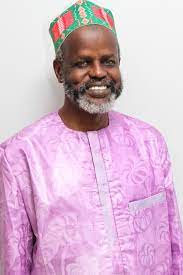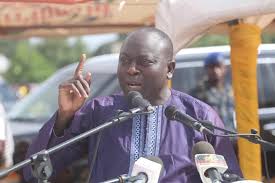By Mama A. Touray
Director of Governance, David Gomez last Wednesday testified that the government of The Gambia embraced decentralization to bring development to the grassroots.
Director Gomez made this testimony before the Local Government Commission of Inquiry held at Djembe Hotel in Senegambia.
In his testimony, Mr. Gomez apprised the commission that “The government of the Gambia, like other countries around Africa, decided to embrace decentralization as a way of bringing development to the grassroots of this country”.
He added that way back in the late 80s leading to the early 90s, consultation was held with various stakeholders both national and international, and in particular the UN agencies, and this he said was followed by a report that was commissioned by the UNDP and in the report, it was recommended to government to adopt decentralization as its blueprint on national development.
Mr. Gomez stated that fortunately and unfortunately that was during the First Republic, while there was a change of government shortly after that and fortunately the incoming government also embraced decentralization as a national policy and strategy in its development aspirations.
He continued: “It could be recalled that there was international donor support but along the line, this support dwindled, the momentum was lost but again was regained; it as a result of the coming into being of the 1997 constitution which paved the way for decentralization in The Gambia. That brought about the creation of certain legal frameworks such as the local government act 2002, and 2004, the Scheme of service rules 2003, and the local government finance manual 2009”.
The Director of Governance went on to say all these were geared towards paving the way to the decentralization process that Gambians envisage for themselves and also described decentralization as the transfer of authority or certain central government functions to local authorities.
Director Gomez told the Commissioners about the vision of the government in decentralization. Explaining, “The government’s vision is to decentralize by devolution, there are so many forms of decentralization and it will be inappropriate for the government to want to take them all on board at the same time. So, it was fitting and appropriate that government decentralize and the government decided to go in for decentralization by devolution whereby certain central government functions are devolved to the local authorities”.
Decentralization, he said, is in two folds, one should run from 2015 to 2019 and the second phase was supposed to be 2020 to 2024.
He further testified that decentralization is very slow and that only a few ministries were able to decentralize to some degree and these ministries he said are the Ministry of Basic and Secondary Education, the Ministry of Agriculture, and the Ministry of Health.
He also told the Commission that MOBSE, established directorates in all the regions in this country, and all these offices are headed by directors and other senior officials. And there are certain decisions that should have been taken by the central government but are now devolved
at that level on behalf of the central government.
He said certain recruitments of teachers like untrained teachers are done at the level of the regions instead of the central government handling it. This is most especially the untrained teachers and contract teachers, supervising and monitoring have to do with education in their respective regions.
“Ministries of Agriculture and Health, both of them were actually decentralized at some levels just like the Ministry of Basic and Secondary Education if you go to the regions, they have regional health directorates all headed by directorates so some central government policies are devoured to them so that they deal with them at their level” he clarified.




